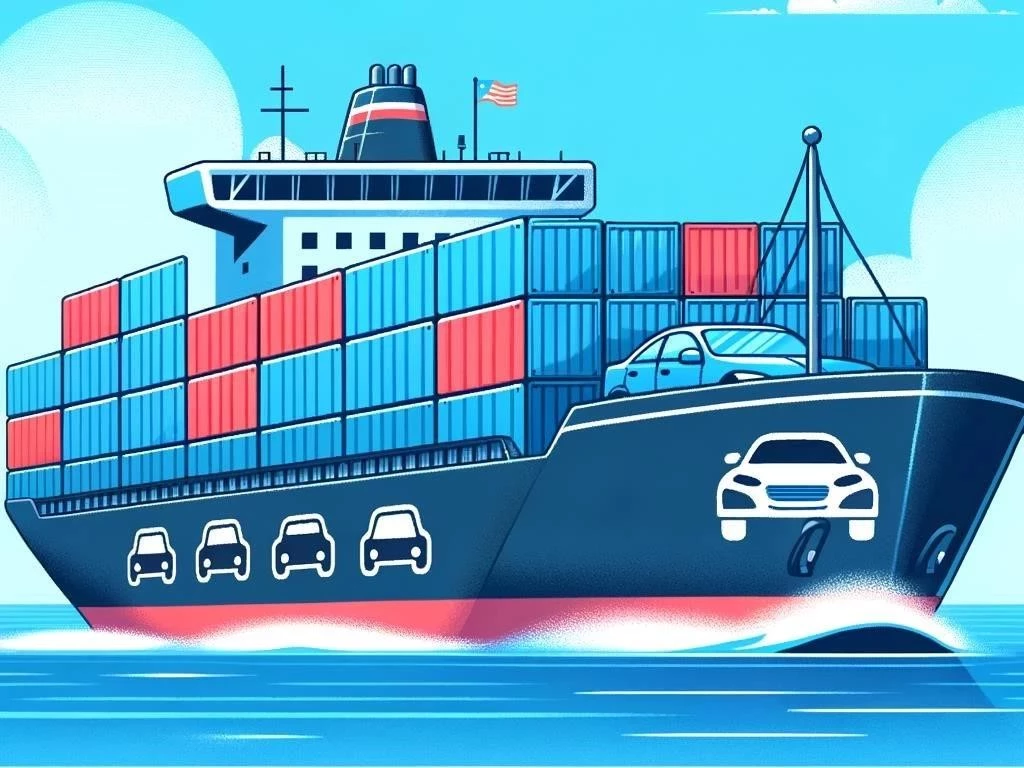How Much Does It Cost to Ship a Car to Puerto Rico?
Shipping a car to Puerto Rico involves various factors influencing the overall cost, including shipping cost, vehicle type, and chosen transport method affecting car shipping rates significantly;
Understanding Shipping Costs
When considering the cost of shipping a car to Puerto Rico, it’s essential to understand various components that contribute to the total shipping cost. The primary factors include the distance from the origin to the destination, the type of vehicle being shipped, and the chosen transport method, whether open or enclosed transport. Shipping companies may offer different car shipping rates based on these elements. Additionally, logistics play a crucial role in determining the overall cost, as they manage the entire process from pick-up to delivery. Other considerations include freight charges, which can vary, and potential customs fees when importing a vehicle. It’s important to factor in possible import taxes that may apply upon arrival in Puerto Rico. To get an accurate estimate, potential customers should seek out vehicle shipping quotes from multiple auto transport services, ensuring they understand all aspects of shipping costs involved in their vehicle relocation.
Factors Affecting Car Shipping Rates
Several key factors influence car shipping rates when transporting a vehicle to Puerto Rico. Firstly, the distance between the pick-up and delivery locations plays a significant role in determining the overall shipping cost. Longer distances typically incur higher freight charges. Secondly, the type of vehicle being shipped can affect rates, as larger or heavier vehicles may require special handling. Additionally, the chosen transport method, whether open transport or enclosed transport, impacts pricing, with enclosed options generally being more expensive due to added protection. Seasonal demand can also influence rates; peak shipping times may result in higher costs. Furthermore, shipping companies may consider the current fuel prices when calculating shipping costs. Lastly, additional fees, including customs fees and port fees, can affect the total price. Understanding these factors is essential for obtaining accurate vehicle shipping quotes and ensuring a smooth vehicle relocation process.
The Role of Shipping Companies in Vehicle Relocation
Shipping companies play a pivotal role in the vehicle relocation process when transporting cars to Puerto Rico. They provide essential auto transport services that ensure a smooth transition from the origin to the destination. These companies are responsible for coordinating logistics, managing the necessary paperwork, and handling customs requirements. They also offer various shipping options, including open transport and enclosed transport, catering to diverse customer preferences and budgets. By providing accurate vehicle shipping quotes, shipping companies help customers understand the overall costs involved. Moreover, they assist in calculating shipping costs based on factors such as vehicle size, distance, and delivery time. Shipping companies also offer valuable services such as vehicle tracking, which allows customers to monitor their car’s journey in real time. Additionally, they provide shipping insurance options, protecting the vehicle during transit, and ensuring peace of mind for the owner throughout the shipping process.
Types of Car Transport Options
When shipping a car to Puerto Rico, customers can choose between various transport options, including open transport, which is more economical, and enclosed transport, providing enhanced vehicle protection.
Open Transport vs. Enclosed Transport
When deciding on car shipping options to Puerto Rico, customers often weigh the pros and cons of open transport versus enclosed transport. Open transport is typically the more cost-effective choice, allowing for multiple vehicles to be shipped simultaneously. This method exposes the vehicle to the elements, but many cars arrive safely and without damage. In contrast, enclosed transport offers enhanced protection for vehicles, shielding them from weather, debris, and potential scratches during transit. This method is particularly advantageous for high-value or classic cars, as it provides peace of mind. However, enclosed transport tends to come with higher shipping costs due to the added security and care involved. Customers should consider their budget, the type of vehicle being shipped, and personal preferences when choosing between these two options. Ultimately, understanding the differences between open and enclosed transport can help inform the decision-making process for vehicle relocation.
International Shipping Considerations
Shipping a car to Puerto Rico involves several international shipping considerations that can influence overall costs. As a U.S. territory, Puerto Rico has unique customs regulations that must be adhered to when transporting vehicles. Understanding these regulations is crucial to avoid unexpected delays or additional fees. Import taxes may apply when bringing a vehicle into Puerto Rico, depending on its value and condition. Additionally, customs fees must be accounted for, which can vary based on the vehicle type and shipping method. Proper documentation is essential for smooth processing, including titles, registrations, and proof of ownership. Shipping insurance is another important consideration, protecting against potential damage during transit. Furthermore, delivery time can fluctuate based on logistics and shipping routes, so it’s vital to factor this into planning. By being aware of these international shipping considerations, customers can better prepare for the costs associated with relocating their vehicles to Puerto Rico.
Calculating Total Shipping Costs
To determine the total shipping costs for transporting a vehicle to Puerto Rico, it’s essential to consider freight charges, customs fees, import taxes, and any additional associated expenses.
Freight Charges Breakdown
Understanding freight charges is essential for calculating the total cost of shipping a car to Puerto Rico. Freight charges generally encompass the expenses associated with transporting the vehicle from the origin to the destination. These charges can vary based on several factors, including the distance, the shipping method chosen—such as open transport or enclosed transport—and the size or weight of the vehicle. Shipping companies usually provide a base rate that includes standard transportation costs; however, additional fees may apply for expedited services or special handling requirements. The time of year can also impact freight charges, as peak seasons often lead to increased demand and higher prices. Customers should request detailed quotes from multiple shipping companies to get a comprehensive breakdown of all freight charges involved. This approach ensures that there are no hidden costs and allows for informed comparisons, ultimately leading to better decision-making regarding vehicle relocation expenses.
Customs Fees and Import Taxes
When shipping a car to Puerto Rico, understanding customs fees and import taxes is crucial for calculating the total cost; Even though Puerto Rico is a U.S. territory, vehicles still undergo customs procedures due to the nature of international shipping. Customs fees vary based on the vehicle’s value, age, and condition. Import taxes may also apply, depending on the specifics of the vehicle being shipped. It’s essential to have all necessary documentation, including the vehicle’s title and proof of ownership, to facilitate the customs process. Failing to meet requirements can lead to delays and additional costs. Customers should be proactive in researching potential taxes and fees before shipping, as these costs can significantly impact the overall budget. Consulting with shipping companies can provide valuable insight into expected fees and taxes, ensuring that customers are well-prepared financially for the vehicle relocation to Puerto Rico, avoiding unexpected expenses.
Additional Costs: Port Fees and Shipping Insurance
When calculating the total cost of shipping a car to Puerto Rico, it’s vital to consider additional costs such as port fees and shipping insurance; Port fees are charges imposed by the destination port for handling and processing the vehicle upon arrival. These fees can vary based on the shipping company and the specific port used, and they may include unloading, storage, and administrative charges. It’s important to inquire about these fees upfront to avoid unexpected expenses. Additionally, shipping insurance is crucial for protecting the vehicle during transit. While not always mandatory, it provides peace of mind, covering potential damages or loss. The cost of shipping insurance can vary based on the vehicle’s value and the coverage selected. To ensure adequate protection, customers should assess their insurance options carefully. By accounting for port fees and shipping insurance, customers can better prepare for the overall costs associated with vehicle relocation.

Getting Accurate Vehicle Shipping Quotes
Obtaining accurate vehicle shipping quotes is essential for determining the overall cost to ship a car to Puerto Rico, ensuring all factors, fees, and services are thoroughly considered.
How to Compare Auto Transport Services
Comparing auto transport services is crucial for finding the best price and service when shipping a car to Puerto Rico. Start by gathering quotes from multiple shipping companies, ensuring that each quote includes comprehensive details about the services offered. Look for transparency in pricing, including freight charges, customs fees, port fees, and any additional costs related to shipping insurance. Next, evaluate customer reviews and ratings to gauge the reliability and reputation of each company. It’s also important to inquire about the types of transport options available, such as open or enclosed transport, as this can impact costs and vehicle safety during transit. Additionally, consider the estimated delivery time and whether the company provides vehicle tracking services. By systematically comparing these factors, you can make an informed decision that balances cost, reliability, and quality of service, ultimately ensuring a smooth vehicle relocation experience to Puerto Rico.
Understanding Delivery Time and Vehicle Tracking
When shipping a car to Puerto Rico, understanding delivery time and vehicle tracking is essential for effective planning. Delivery time can vary significantly based on factors such as the shipping method, distance, and the specific routes taken by the transport company. Typically, open transport may be quicker but less secure, while enclosed transport might take longer due to fewer available carriers. It’s crucial to ask shipping companies for estimated delivery timelines during the quoting process. Additionally, many reputable shipping companies offer vehicle tracking services, which allow customers to monitor their vehicle’s location in real-time throughout the shipping process. This feature provides peace of mind, especially when dealing with long-distance transports. Knowing the expected delivery window and having access to tracking information can help customers coordinate logistics on their end, ensuring a smooth pickup process upon the vehicle’s arrival in Puerto Rico. Always confirm these details before finalizing the shipping agreement.








